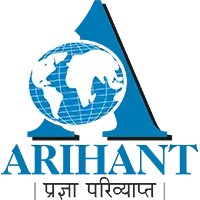Course I
Introduction to Human Rights and Duties
I) Basic Concept
a) Human Values- Dignity , Liberty, Equality , Justice, Unity in Diversity, Ethics and Morals
b) Meaning and significance of Human Rights Education
II) Perspectives of Rights and Duties
a) Rights: Inherent-Inalienable-Universal- Individual and Groups
b) Nature and concept of Duties
c) Interrelationship of Rights and Duties
III) Introduction to Terminology of Various Legal Instruments
a) Meaning of Legal Instrument- Binding Nature
b) Types of Instruments: Covenant-Charter-Declaration-Treaty-Convention-Protocol-Executive Orders and Statutes
IV) United Nations And Human Rights
a) Brief History of Human Rights- International and National Perspectives
b) Provision of the charters of United Nations
c) Universal Declaration of Human Rights- Significance-Preamble
d) Civil and Political Rights-(Art. 1-21)
e) Economic, Social and Cultural Rights-(Art.22-28)
f) Duties and Limitations-(Art. 29)
g) Final Provision (Art. 30)
Course II
Human rights of vulnerable and disadvantaged groups
I) General Introduction
a) Meaning and Concept of Vulnerable and Disadvantaged
b) Groups, Customary, Socio-Economic and Cultural Problems of
c) Vulnerable and Disadvantaged Groups
II) Social status of women and children in International and national perspective
a) Human Rights and Women’s Rights –International and National Standards
b) Human Rights of Children-International and National Standards
III) Status of Social and Economically Disadvantaged people
a) Status of Indigenous People and the Role of the UN
b) Status of SC/ST and Other Indigenous People in the Indian Scenario
c) Human Rights of Aged and Disabled
d) The Minorities and Human Rights
IV) Human rights of vulnerable groups
a) Stateless Persons
b) Sex Workers
c) Migrant Workers
d) HIV/AIDS Victims
Course III
Human Rights and Duties in India: Law, Policy, Society and Enforcement
Mechanism
I. Human Rights in Indian Context
a) Indian Bill of Rights And Sarvodaya
b) Preamble- Fundamental Rights- Directive Principles-Fundamental Duties
II. Human Rights- Enforcement Mechanism
a) Human Rights Act, 1993
b) Judicial Organs- Supreme Court (Art 32) And High Courts(Art 226)
c) Human Rights Commission- National and State of Maharashtra
d) Commission of Women, children , Minority, SC/ST
e) Survey of International Mechanism
III. Human Rights Violations and Indian Polity
a) Inequalities in society-population-illiteracy-poverty-caster-inaccessibility of legal redress
b) Abuse of Executive Power-Corruption-Nepotism and favoritism
c) Human Rights and Good Governance
d)
IV. Role of Advocacy Groups
a) Professional Bodies: Press, Media, Role of Lawyers-Legal Aid
b) Educational Institutions
c) Role of Corporate Sector
d) NGO’s

